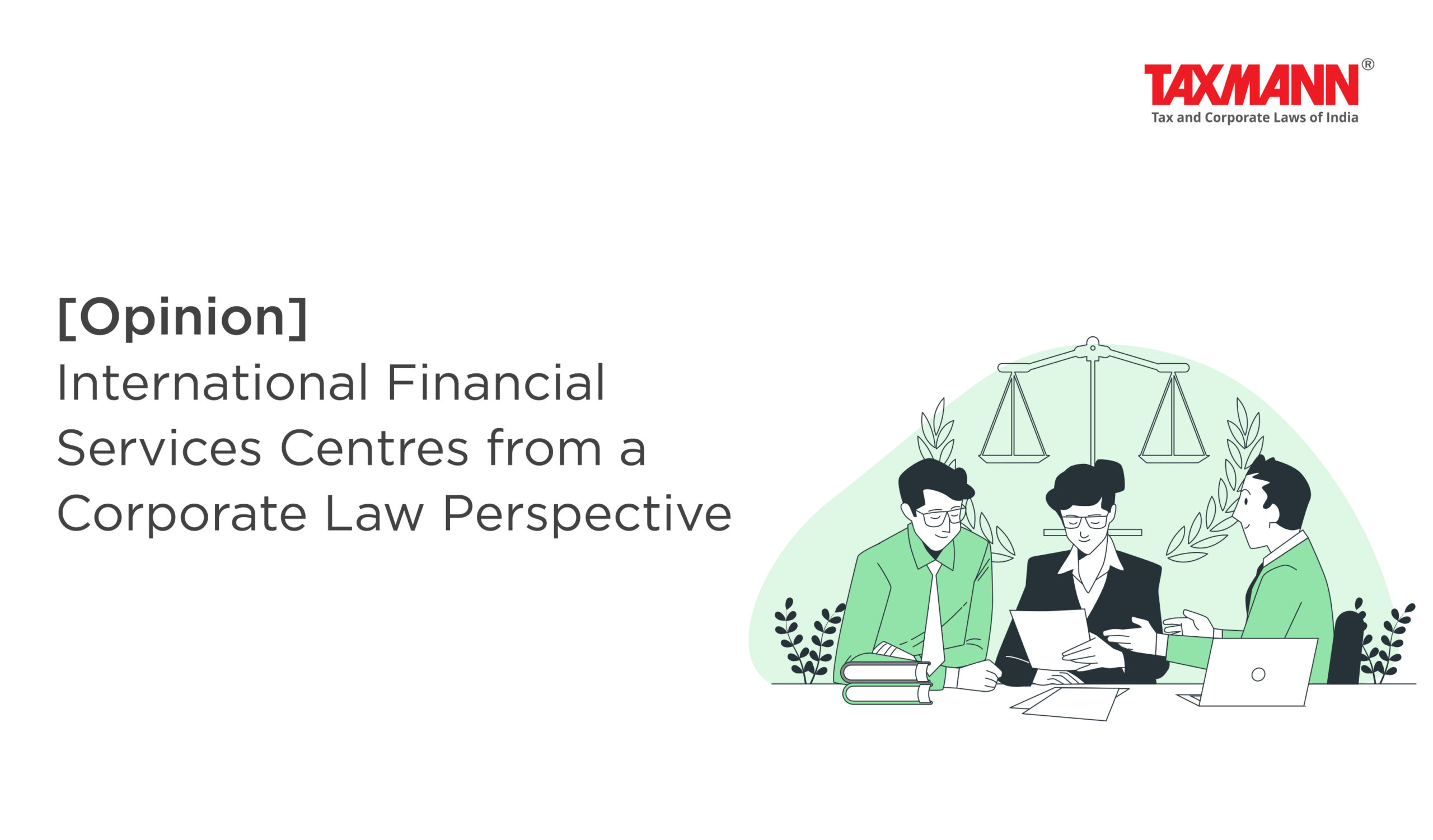[Opinion] International Financial Services Centres from a Corporate Law Perspective
- Blog|News|FEMA & Banking|
- 2 Min Read
- By Taxmann
- |
- Last Updated on 29 May, 2023

Parth Ved – [2023] 150 taxmann.com 454 (Article)
1. Background
A clear and dynamic regulatory framework is the biggest supporting pillar for any thriving industry. It has the potential to boost quiet sectors or put an abrupt end to flourished ones. The more ‘business friendly’ a nation’s regulatory regime, the more business the nation might see. This has been the focus of the current Indian Government – to create ‘ease of doing business’ in India. One of the flagship initiatives is the establishment of Gujarat International Finance Tec-City (‘GIFT City‘), India’s first International Financial Services Centre, a planned business district offering competitive edge to financial services and technology-related activities.
Through this write-up, the author has tried to explain the regulatory framework for entities in IFSC from a corporate law perspective. The coverage includes the applicability of the Companies Act, 2013; SEBI regulations; Foreign Exchange Management Act, 1999 and relevant guidelines thereunder; guidelines issued by the International Financial Services Centres Authority.
2. What is IFSC?
International Financial Services Centre (‘IFSC‘) is a specialized designated area in a Special Economic Zone (‘SEZ‘) developed for creating a global financial hub wherein financial entities can be set-up for providing various financial services viz. corporate banking, insurance, investment & fund management, trading of securities, etc., to persons across borders. The power to set up an IFSC rests with the Central Government pursuant to section 18 of the Special Economic Zones Act, 2005 (‘SEZ Act‘). Only one IFSC can be approved in an SEZ.
The fundamental idea behind setting up an IFSC is to attract foreign investors (and with them, their investments) in India. This results in an inflow of foreign funds in the Indian market and the creation of multiple employment opportunities locally. Naturally, to attract global participants, there is a need to provide a platform on par with global standards in terms of infrastructure facilities, technological capabilities and regulatory requirements.
3. Who regulates IFSC?
Given the dynamic nature of businesses in the IFSC, involving financial services, foreign exchange, capital market activities, fund management, etc., a high degree of inter-regulatory coordination is required. They were earlier regulated by domestic financial regulators, namely, RBI, SEBI, PFRDA and IRDAI.
However, in line with the aforesaid objectives of setting up an IFSC, a unified regulator in the name of the International Financial Services Centres Authority (‘IFSCA‘) has been set up under the International Financial Services Centres Authority Act, 2019 (‘IFSCA Act‘) for the development and regulation of financial products, financial services and financial institutions in IFSC in India. It has replaced the RBI, SEBI, IRDAI and PFRDA and acts as a single unified authority (the list of laws which will now be governed by the IFSCA instead of these regulators is given in the table below).
The powers of IFSCA to regulate the entities situated in IFSC came into effect from September 29, 2020, while some provisions of the IFSCA Act were made effective from April 27, 2020 and August 21, 20201.
Click Here To Read The Full Article
Disclaimer: The content/information published on the website is only for general information of the user and shall not be construed as legal advice. While the Taxmann has exercised reasonable efforts to ensure the veracity of information/content published, Taxmann shall be under no liability in any manner whatsoever for incorrect information, if any.

Taxmann Publications has a dedicated in-house Research & Editorial Team. This team consists of a team of Chartered Accountants, Company Secretaries, and Lawyers. This team works under the guidance and supervision of editor-in-chief Mr Rakesh Bhargava.
The Research and Editorial Team is responsible for developing reliable and accurate content for the readers. The team follows the six-sigma approach to achieve the benchmark of zero error in its publications and research platforms. The team ensures that the following publication guidelines are thoroughly followed while developing the content:
- The statutory material is obtained only from the authorized and reliable sources
- All the latest developments in the judicial and legislative fields are covered
- Prepare the analytical write-ups on current, controversial, and important issues to help the readers to understand the concept and its implications
- Every content published by Taxmann is complete, accurate and lucid
- All evidence-based statements are supported with proper reference to Section, Circular No., Notification No. or citations
- The golden rules of grammar, style and consistency are thoroughly followed
- Font and size that’s easy to read and remain consistent across all imprint and digital publications are applied



 CA | CS | CMA
CA | CS | CMA
